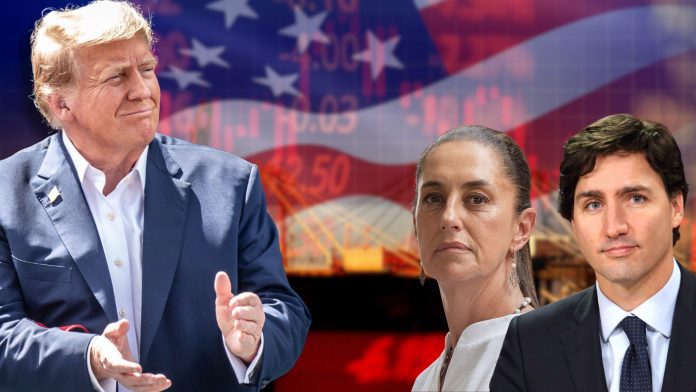At midnight, President Donald Trump implemented broad new tariffs, imposing a 25% duty on imports from Canada and Mexico and doubling tariffs on Chinese goods to 20%. The move sparked swift retaliatory measures from affected nations, sending shockwaves through global markets.
Immediate reactions and retaliation
Mexican President Claudia Sheinbaum condemned the tariffs as unjustified and announced retaliatory tariffs set to be unveiled on Sunday. Meanwhile, Canadian Prime Minister Justin Trudeau confirmed that Canada will impose 25% tariffs on $107 billion worth of U.S. goods, with the first wave taking effect Tuesday and additional measures following in three weeks.
China also responded swiftly, imposing up to 15% tariffs on key U.S. agricultural exports, including corn and soybeans, starting March 10. Additionally, China introduced new export controls, signaling escalating tensions.
Economic and market fallout
Economists have warned that Trump’s aggressive trade stance could trigger inflation, raising consumer costs. The financial markets reacted sharply, with the S&P 500 plunging 1.8%, marking its worst day since December. Stocks with trade exposure, including Ford, General Motors, and Chipotle, suffered additional losses in premarket trading.
Legendary investor Warren Buffett weighed in during an interview with CBS News, calling tariffs a “tax on goods” that ultimately burden consumers.
Further escalation
Trump also confirmed plans for reciprocal tariffs against Europe beginning April 2, targeting what he calls unfair trade practices. The European Union, already critical of U.S. trade policies, is expected to respond in kind.
As tensions mount, businesses and global leaders brace for continued economic turbulence, with trade wars reshaping international commerce.



